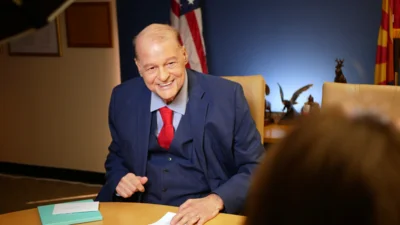Brush & Nibs Studio cannot be forced to create custom invitations, the Arizona Supreme Court ruled Monday night.
The 4-3 decision stemmed from a request to the online business by a same-sex couple. The court agreed that the city of Phoenix cannot apply its Human Relations Ordinance to force the business or its owners to create "in violation of their sincerely held religious beliefs," the judges rules. "Joanna Duka, Breanna Koski and Brush & Nib have the right to refuse to express such messages under article 2, section 6 of the Arizona Constitution, as well as Arizona’s Free Exercise of Religion Act."
Voting in the majority were justices Andrew Gould, John Lopez and Clint Bolick - all appointees of Gov. Doug Ducey - and John Pelander.
In the minority were justices Scott Bales, Ann Timmer and Appellate Court Judge Christopher Staring. Staring sat in for Justice Robert Brutinel, who recused himself. Bales and Pelander have retired since first hearing the case in January. They stay on until the case is concluded.
The court ruled that Brush & Nibs can refuse to create only one product: custom invitations for same-sex weddings. This ruling applies only to Brush & Nibs Studio.
In his dissenting opinion with Timmer and Staring, Bales warned "Our constitutions and laws do not entitle a business to discriminate among customers based on its owners’ disapproval of certain groups, even if that disapproval is based on sincerely held religious beliefs.... If religious beliefs can allow discriminatory refusals of service to same-sex couples, there is no principled reason why [state law] will not also protect discriminatory denials of goods or services in other contexts to other protected groups."
The controversy began when the Phoenix City Council passed a civil rights ordinance in 2013, protecting homosexuals, bisexuals and transgender residents from discrimination. Brush & Nibs Studio sued the city of Phoenix, alleging the ordinance violated its religious and artistic freedom. Neither the business nor its owners, Duka and Koski, had received a complaint.
Earlier, the Arizona Court of Appeals ruled that the city ordinance regulates businesses' conduct and not their beliefs, when it rejected the owners' claims that the Phoenix ordinance violates their religious freedom.





 Alerts Sign-up
Alerts Sign-up